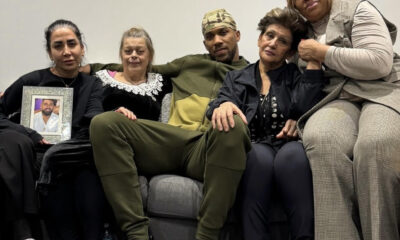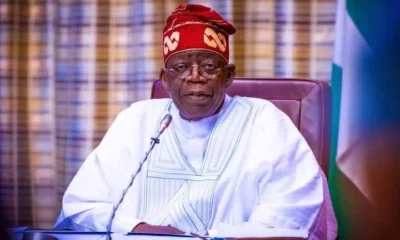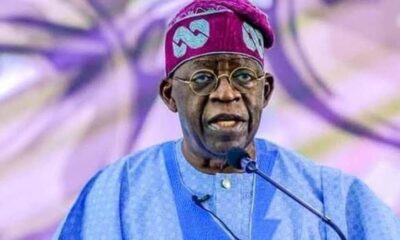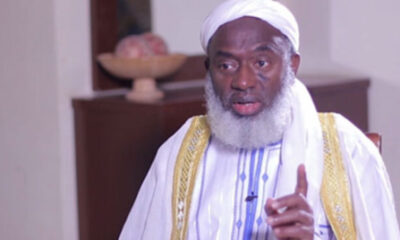There was confusion on Monday over reopening of schools in the country as the Federal Government issued guidelines, but failed to mention the resumption date for the schools.
The guidelines for the reopening of schools were contained in a document titled, ‘Guidelines for schools and learning facilities reopening after COVID-19 pandemic closures: Taking responsibility for safe schools and quality learning.’
It was signed by the Minister of Education, Mallam Adamu Adamu, and Minister of State for Education, Mr Chukwuemeka Nwajiuba.
The Presidential Task Force on COVID-19 had, at its press briefing on June 29, said the Federal Government had approved the resumption of graduating pupils in Primary 6, Junior Secondary School 3 and Senior Secondary School 3.
It said the resumption would enable the pupils to prepare for their final examinations. The task force said the West African Examinations Council had fixed the West African Senior School Certificate Examination for between August 3 and September 5.
At the June 29 press briefing, the PTF National Coordinator, Dr Sani Aliyu, said, “Pupils in graduating classes – only graduating classes; Primary 6, JSS 3 and SSS3 – will be allowed to resume in preparation for examinations.”
But on Wednesday, the Federal Executive Council, at its meeting made a U-turn when it put the planned resumption of graduating classes on hold on the grounds that it was not safe to reopen schools because of COVID-19.
It said pupils of the Federal Government-owned unity schools would not participate in WASSCE.
Despite putting the resumption on hold, the Federal Ministry of Education on Monday issued guidelines for the reopening of the schools.
According to the guidelines, the safe distancing measures require that in schools and other learning facilities, learners should be supported to stay two metres apart.
The document states that where the two-metre rule could not be reasonably applied, other risk mitigation strategies could be adopted.
It states, “In these circumstances, risk assessments must be undertaken with the best interests of the learners, teachers, and other education personnel in mind. The scenarios require organising learners and children into small groups with consistent membership and compliance to the risk mitigation strategies. The membership of these groups should not change unless the NCDC public health guidelines suggest otherwise.”
The government said with the release of the document, it would conduct a rapid assessment of funding requirements for upgrading infrastructure such as classrooms, furniture and water to meet prescribed safe school reopening requirements.
Speaking on the guidelines, Adamu said, “Given that COVID – 19 may be with us for a while, the guidelines also highlight the urgent need to maintain and improve upon distance-learning programmes. Our aim is to identify and strengthen programmes that will guarantee the recovery of learning gaps resulting from the pandemic.
But at the PTF press conference on Monday, Nwajiuba insisted that there was no policy somersault on the planned reopening of schools.
Nwajiuba said, “Mallam Adamu Adamu is consistently in tune with what we have said in the PTF. No schools are reopened, we didn’t reopen any school.
“He (Adamu Adamu) was only giving what he has received which was the timetable as published by WAEC and advised that this period, from now till when the (WASCCE) examination will take place sometime in August, anybody who wanted to use the schools would have to follow the guidelines.
“He said however that he is not in charge of private schools and schools under the concurrent list and power have therefore been devolved to sub-national who can take a decision on their state-owned schools, whether they can participate in the WAEC examinations or not.
At the press briefing, the PTF said the Federal Government had asked all government officials to suspend what it called all unnecessary travels for meetings, saying they should continue with virtual meetings.
With electioneering reaching its peak in Edo and Ondo states where governorship elections would hold, the government also cautioned politicians to be circumspect in their gatherings.
The PTF Chairman, Boss Mustapha, who is also the Secretary to the Government of the Federation, urged corporate organisations not to misconstrue the resumption of flights but also encourage virtual meetings.
He said, “The PTF wishes to reiterate the following: ‘all government offices shall continue to hold virtual meetings in their offices especially where participants exceed four persons and suspend all unnecessary travels for meetings.
“For corporate organisations, board members, etc, the reopening of the domestic flights should not be misconstrued. The PTF strongly encourages virtual meetings as well.
“We still urge places of worship to cautiously follow the guidelines on public gatherings, and we urge members of the political class to exercise utmost circumspection in their gathering for whatever reasons.”
On the testing deficit, the SGF said the task force has resolved to establish one sample collection centre per local government area.
The Director-General of the Nigerian Centre for Disease Control, Dr Chikwe Ihekweazu, on his part said new evidence suggested that COVID-19 might be transmitted through the air.
He explained that hitherto the virus was believed to only be transmittable through droplets which emanate from the nose and the mouth and fall to the ground.
Ihekweazu, however, stated that studies of new infections showed that the disease might also be airborne.
The NCDC boss said, “Over the past few weeks, increasing evidence has emerged that in addition to droplet infections, we cannot rule out that airborne transmission is also possible as a mode of transmission of Covid-19.”
Ihekweazu said with this new revelation, the wearing of face masks and the need to maintain social distancing had become imperative.
The NCDC boss also stated that one of the challenges undermining the agency’s efforts was the high number of unnecessary calls being received by the emergency centres.
He said last week alone 26 per cent of the calls its emergency centres received were ‘hoax’ calls.


 BIG STORY4 days ago
BIG STORY4 days ago
 BIG STORY1 day ago
BIG STORY1 day ago
 Uncategorized5 days ago
Uncategorized5 days ago
 BIG STORY4 days ago
BIG STORY4 days ago
 BIG STORY5 days ago
BIG STORY5 days ago
 BIG STORY7 hours ago
BIG STORY7 hours ago
 BIG STORY1 day ago
BIG STORY1 day ago
 BIG STORY3 days ago
BIG STORY3 days ago
















